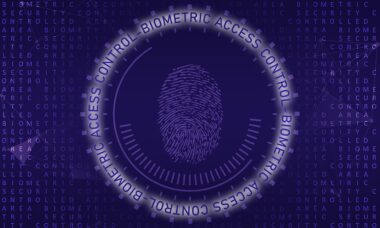Understanding Self-Sovereign Identity on the Blockchain
Self-sovereign identity (SSI) represents a transformative concept in the realm of digital identity management. Unlike traditional systems where identities are controlled by central authorities, SSI empowers individuals by allowing them to control their personal information. This shift is heralded as a significant leap towards privacy and autonomy in the digital world. By utilizing blockchain technology, individuals can store their identity data securely without reliance on third-party intermediaries. Moreover, using cryptographic techniques ensures that personal data remains private and enables selective sharing. SSI provides a more robust framework, allowing individuals to confidently interact with services and organizations without compromising sensitive information. The flexibility and transparency provided by blockchain bolster trust, addressing concerns surrounding data breaches and identity theft. As organizations and users alike seek greater control over their identity data, the adoption of SSI is expected to rise. The penetration of SSI into various sectors, including finance, healthcare, and education, is increasingly evident, paving the way for a more inclusive and secure digital landscape. Overall, SSI contributes significantly to the evolution of identity management, ensuring comprehensive protection and ownership of personal data for users worldwide.
At its core, self-sovereign identity seeks to address the inherent issues present in traditional identity management systems. Conventional systems often require individuals to relinquish control of their data to companies or governmental entities. This dependency raises numerous risks, including unauthorized access and potential misuse of personal information. In contrast, SSI regards data ownership as a fundamental human right. According to SSI principles, individuals hold their own unique identifiers, which enable seamless verification without sharing underlying sensitive data. By applying decentralized identifiers (DIDs) onto a blockchain, users can authenticate their identities dynamically and securely. This decentralization reduces the potential for single points of failure, making it more resilient against attacks or breaches. As governments and corporations increasingly adopt blockchain solutions, a shift towards embracing SSI becomes paramount. Achieving widespread acceptance depends on the collaboration among various stakeholders, including technologists, policymakers, and privacy advocates. Furthermore, as the legal landscape evolves, clear guidelines will support the integration of SSI into existing frameworks. Hence, the realization of self-sovereign identity will reshape how identities are conceived, leveraged, and secured in an increasingly digital society.
Benefits of Self-Sovereign Identity
There are numerous advantages associated with self-sovereign identity, which contribute significantly to its growing popularity. First and foremost, SSI enhances privacy, granting individuals complete control over their personal information. Users can choose which attributes to share, when to share them, and with whom, significantly reducing the risk of data exploitation. Furthermore, this selective disclosure empowers individuals by minimizing the extent of personal data circulation. Moreover, the transparency and immutability offered by blockchain technology instill an unparalleled sense of trust. Transactions and interactions can be easily verified while remaining confidential, fostering confidence between parties. Additionally, organizations benefit from SSI by streamlining identity verification processes and reducing fraudulent activities. By mitigating identity fraud, companies save substantial resources and enhance customer trust. Besides, SSI systems can drastically lower compliance costs associated with traditional identity verification mechanisms. Enhanced user experience and efficiency result from eliminating intermediary processes and hence optimizing authentication. Overall, the benefits of self-sovereign identity resonate deeply with both individuals and organizations, emphasizing the need for a fundamental shift in how identity management is approached and executed.
Despite its myriad benefits, self-sovereign identity also faces challenges that must be addressed for widespread adoption. One primary concern involves the technological hurdles associated with the implementation and maintenance of decentralized systems. Integrating SSI into existing infrastructure requires significant investment in resources and time. Moreover, scalability becomes a challenge as the number of users and verifications increases, posing potential bottlenecks. Furthermore, the understanding and acceptance of new technologies among users and organizations is essential to overcome resistance. Many individuals may feel overwhelmed by the complexities associated with blockchain and SSI, necessitating user-friendly solutions and educational initiatives. Additionally, regulatory considerations pose significant challenges to the adoption of self-sovereign identity. Policymakers must explore how existing laws interact with decentralized identity systems, developing clear standards and frameworks that support innovation while safeguarding user rights. Finally, security remains an ongoing concern; users must take proactive measures to safeguard their private keys. Engaging communities around SSI and enhancing collaboration between technologists and policymakers will ultimately pave the way for broader acceptance and functionality of self-sovereign identity systems.
The Role of Blockchain in SSI
Blockchain technology plays an integral role in realizing the vision of self-sovereign identity. By leveraging decentralized ledgers, blockchain empowers users with a secure method to store and manage their identities. Unlike traditional databases, which are susceptible to single points of failure, blockchain fosters resilience through redundancy and secure cryptographic principles. Consequently, individuals possess greater control over their identity, diminishing reliance on custodians. Additionally, blockchain establishes trust among different parties without necessitating a middleman. Verification of user identities occurs on-chain, ensuring that the credentials are valid and tamper-proof. This inherent transparency in blockchain systems propels accountability and deters malicious activity. Furthermore, interoperability enables various SSI solutions across platforms, improving synergies while promoting a coherent ecosystem. By allowing users to connect multiple identity providers, they can manage all identity attributes seamlessly. Moreover, the immutability of blockchain ensures that data cannot be altered retroactively. Thus, self-sovereign identity implemented on a blockchain could prove pivotal in addressing the myriad challenges of personal identity management and decreasing the risks associated with centralization.
Another crucial component of blockchain-based self-sovereign identity systems is the use of decentralized identifiers (DIDs). DIDs are unique, verifiable identifiers that operate independently of any centralized authority, making them essential for self-sovereignty. Users can generate and control their DIDs, typically linked to their encrypted identity data stored on the blockchain. This allows individuals to interact with various services without disclosing unnecessary or sensitive information. The decentralized nature of DIDs also enhances privacy, as they are inherently resistant to tracking and unauthorized access. In practice, this means that users can manage their identities across numerous platforms securely while maintaining a consistent level of privacy. Furthermore, DIDs are compatible with various credential types, including digital certificates and verifiable claims. This compatibility facilitates seamless integration of SSI into diverse applications, further strengthening the case for its adoption. As organizations recognize the importance of data security and user-centric solutions, DIDs will play a pivotal role in the future of identity management. By taking advantage of this technology, self-sovereign identity can contribute to a more secure and user-friendly digital environment.
The Future of Self-Sovereign Identity
Looking ahead, self-sovereign identity is poised to play a critical role in shaping the future of digital identity management. As individuals and organizations increasingly demand greater control over their personal information, SSI offers a promising solution that aligns with these evolving expectations. The trajectory of SSI will likely be influenced by advancements in underlying technologies and how stakeholders address challenges associated with implementation. Moreover, continued collaboration between technologists, regulators, and privacy advocates will be crucial in establishing policies that promote the responsible adoption of SSI. As various sectors, including finance, healthcare, and government agencies, begin to recognize the advantages of self-sovereign identity, the development of adaptable standards will support this evolution. Furthermore, the emergence of identity-focused blockchain networks may lead to a wave of innovation in the digital identity landscape. These developments will potentially result in increased accessibility while bolstering user security and privacy. Overall, self-sovereign identity has the potential to redefine the paradigms of identity management, paving the way for broader acceptance and integration across various platforms.
In conclusion, self-sovereign identity represents a paradigm shift in digital identity management via blockchain technology. By providing individuals with control over their identity data, it mitigates risks tied to centralization while fostering privacy, trust, and security. Blockchain ensures a transparent, secure environment for identity management that promotes user autonomy. The benefits of SSI, along with ongoing advancements in technology, position it as a transformative solution for various sectors, as organizations seek to understand and adopt this approach. Collaboration among stakeholders and addressing implementation challenges will be essential for SSI’s success and widespread acceptance. As we move towards a decentralized digital future, self-sovereign identity will play a vital role in shaping how identities are perceived, used, and protected. It’s essential to navigate the complexities associated with this approach while ensuring equitable access for all users. The evolution of this concept marks a significant milestone, inviting various stakeholders to contribute to a secure and user-centric identity management framework. By prioritizing individual ownership and control, SSI paves the way for a safer and more efficient digital landscape.





